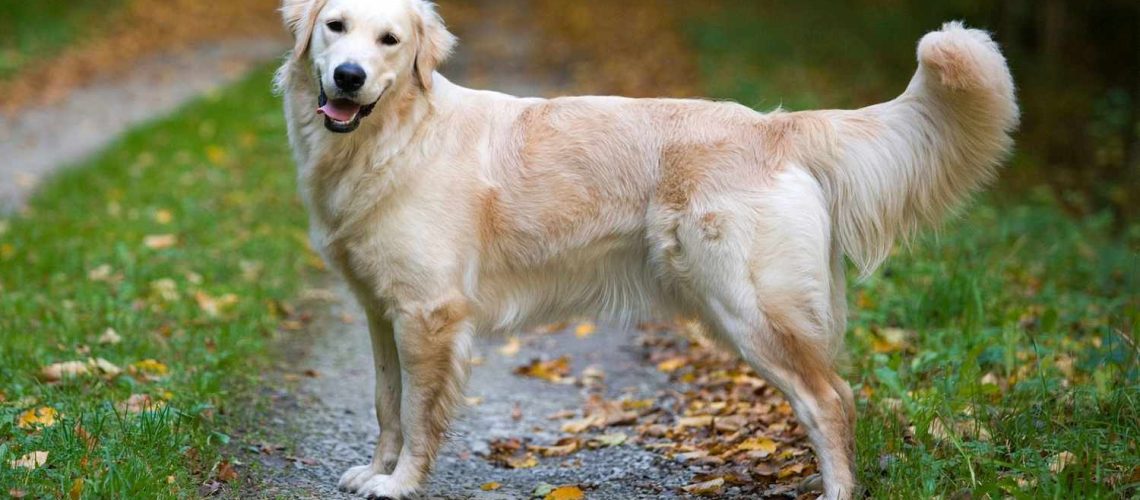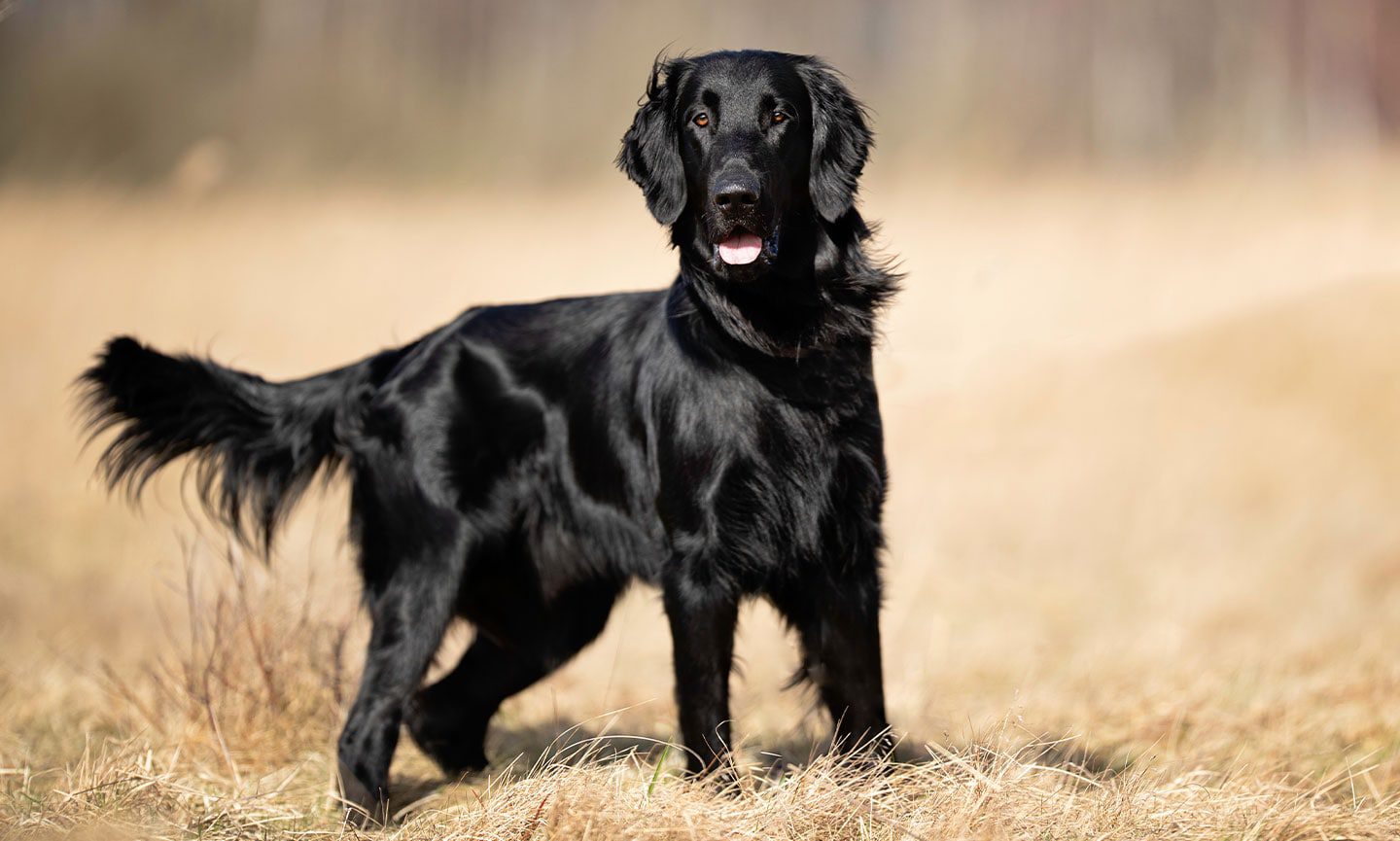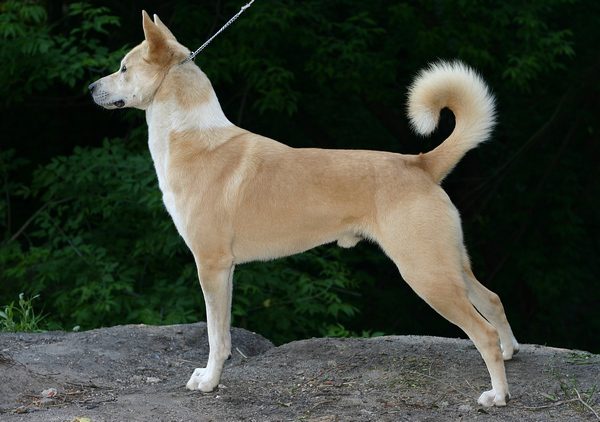Key Takeaways:
- Golden Retrievers are known for their friendly and gentle nature, making them great family pets.
- They have a high energy level and require regular exercise to keep them happy and healthy.
- Golden Retrievers have a thick double coat that requires regular grooming to prevent matting and tangles.
- This breed is highly intelligent and easy to train, making them suitable for various activities such as obedience, agility, and therapy work.
- Regular veterinary check-ups, proper nutrition, and socialization are essential for the overall well-being of Golden Retrievers.
Are you ready to embark on a journey into the world of Golden Retrievers? Prepare to be amazed by the incredible value and benefits that come with understanding this beloved dog breed. Whether you're a current or future dog owner, learning about Golden Retrievers' characteristics and care will equip you with essential knowledge to provide the best possible life for these loyal companions. So, let's dive right in and explore everything there is to know about Golden Retrievers – from their friendly nature to their unique grooming needs. Get ready to unleash your curiosity and become an expert in all things Golden Retriever!
What is a Golden Retriever?
Their Purpose as a Breed
Golden Retrievers are a popular breed of dog known for their friendly and gentle nature. They were originally bred in Scotland during the mid-19th century to retrieve game during hunting trips. Their excellent retrieving skills, combined with their intelligence and trainability, made them ideal for this purpose. Today, Golden Retrievers are not only beloved family pets but also serve as therapy dogs, search and rescue dogs, and even guide dogs for the visually impaired.
Appearance
Golden Retrievers have a medium to large-sized body with a dense and water-repellent coat. They typically have a sturdy build with a broad head and kind eyes that reflect their friendly personality. One of their most distinctive features is their beautiful golden-colored coat, which can range from pale cream to dark gold. Their coat is thick and wavy, providing protection from cold weather and water.
Personality Traits
Golden Retrievers are known for being friendly, intelligent, and eager to please. They have an innate desire to make their owners happy and are often described as loyal companions. They are generally good-natured towards people of all ages, including children, making them an excellent choice for families. Golden Retrievers are also highly sociable with other animals, making them great additions to multi-pet households.
The origin of the name "Golden Retriever"
Breeding Origins
The name "Golden Retriever" was given to this breed due to its ability to retrieve game without causing damage or harm. The credit goes to Lord Tweedmouth (also known as Sir Dudley Marjoribanks), who developed the breed in the late 1800s in Scotland. He wanted a dog that could retrieve shot game undamaged, even from water, which was a common hunting practice at the time.
Development and Recognition
Lord Tweedmouth crossed a yellow-colored retriever named "Nous" with a Tweed Water Spaniel named "Belle" to create the foundation of the Golden Retriever breed. Over several generations, he carefully selected dogs with desirable traits such as intelligence, trainability, and a gentle mouth for carrying game. The breed gained recognition in 1911 when it was officially recognized by The Kennel Club in England.
A Well-suited Name
The name "Golden Retriever" perfectly captures the essence of this breed's purpose and appearance. Their golden coat reflects their regal and beautiful appearance while their retrieving abilities showcase their usefulness in hunting and retrieving tasks. Today, the name has become synonymous with a friendly and loyal companion that brings joy to many households around the world.
Physical characteristics of Golden Retrievers
Size and Weight
Golden Retrievers are medium to large-sized dogs. Adult males typically weigh between 65-75 pounds (29-34 kg), while adult females usually weigh between 55-65 pounds (25-29 kg). They stand about 22-24 inches (56-61 cm) tall at the shoulder.
Muscular Build
Golden Retrievers have a sturdy and muscular build, which allows them to engage in various physical activities. Their strong legs provide them with agility and endurance, making them well-suited for tasks such as swimming, running, and playing fetch.
Coat Characteristics
One of the most notable features of Golden Retrievers is their dense double coat. This coat consists of an outer layer that is water-resistant and an undercoat that provides insulation. The length of their fur can vary, but it is usually medium to long in length. The coat is wavy and lies close to the body, giving them a soft and luxurious appearance.
Color Variations
Golden Retrievers are known for their beautiful golden-colored coat. However, there can be variations within this color range. Some Golden Retrievers may have a lighter cream-colored coat, while others may have a darker gold shade. Regardless of the exact shade, their coat is always rich and lustrous.
The friendly and gentle nature of Golden Retrievers
Affectionate Companions
Golden Retrievers are renowned for their friendly and gentle nature. They are highly affectionate towards their owners and love spending time with them. Whether it's cuddling on the couch or going for long walks, Golden Retrievers thrive on human companionship.
Tolerance and Patience
One of the reasons Golden Retrievers make excellent family pets is their high level of tolerance and patience. They are known for being great with children, often displaying a calm demeanor even in chaotic situations. Their gentle nature makes them less likely to react aggressively when faced with unpredictable behavior from young ones.
Social Butterflies
Golden Retrievers are social animals that enjoy being around people and other animals. They tend to get along well with strangers, making them poor guard dogs but wonderful companions. Their friendly disposition makes them popular therapy dogs in hospitals and nursing homes where they provide comfort and emotional support to patients.
Daily exercise needs for Golden Retrievers
An Active Lifestyle
Golden Retrievers have moderate to high energy levels, requiring regular exercise to keep them happy and healthy. Daily exercise not only helps them burn off excess energy but also keeps them mentally stimulated. Engaging in physical activities also helps prevent behavioral issues that may arise from boredom or pent-up energy.
Exercise Recommendations
To meet their exercise needs, Golden Retrievers should engage in activities such as daily walks, jogging, swimming, and playing fetch. Ideally, they should have at least 30-60 minutes of exercise every day. However, it's important to tailor the exercise routine to the individual dog's age, health, and fitness level.
Mental Stimulation
In addition to physical exercise, Golden Retrievers also benefit from mental stimulation. Puzzle toys, obedience training sessions, and interactive games can help keep their minds sharp and prevent boredom. These activities provide mental challenges that tap into their intelligence and problem-solving abilities.
Grooming routine for a Golden Retriever's coat
Regular Brushing
Golden Retrievers have a dense double coat that requires regular brushing to keep it healthy and free from mats or tangles. Aim to brush their coat at least two to three times a week using a slicker brush or a grooming rake. This helps remove loose hair and prevents it from accumulating around the house.
Bathing Schedule
Golden Retrievers generally do not require frequent bathing unless they get particularly dirty or smelly. Bathing them once every two to three months is usually sufficient. Be sure to use a gentle dog shampoo that won't strip away the natural oils in their coat.
Ears and Teeth Care
Regular ear cleaning is essential for Golden Retrievers as they are prone to ear infections due to their floppy ears. Use a veterinarian-recommended ear cleaner and gently wipe the inside of their ears with cotton balls. Additionally, brush your Golden Retriever's teeth regularly using dog-friendly toothpaste to maintain good dental hygiene.
Common health issues in Golden Retrievers
Hip and Elbow Dysplasia
Golden Retrievers are prone to hip and elbow dysplasia, which is a condition where the joints do not develop properly. This can lead to pain, lameness, and arthritis. Regular exercise, maintaining a healthy weight, and proper breeding practices can help reduce the risk of these conditions.
Progressive Retinal Atrophy (PRA)
PRA is an inherited eye disease that affects Golden Retrievers. It causes progressive degeneration of the retina, leading to vision loss and eventual blindness. Regular eye examinations by a veterinarian can help detect this condition early on, allowing for appropriate management or treatment options.
Cancer
Unfortunately, Golden Retrievers have a higher risk of developing cancer compared to some other breeds. Common types of cancer in Golden Retrievers include lymphoma, hemangiosarcoma, and mast cell tumors. Early detection through regular veterinary check-ups and awareness of potential symptoms is crucial for successful treatment.
Heart Conditions
Certain heart conditions like congestive heart failure and subvalvular aortic stenosis can occur in Golden Retrievers. These conditions may cause symptoms such as coughing, difficulty breathing, or fatigue. Regular veterinary care including heart screenings can help identify these issues early on and provide appropriate treatment options if necessary.
In conclusion, Golden Retrievers are friendly and gentle dogs that make excellent companions due to their loving nature. They require regular exercise to keep them physically and mentally stimulated while also benefiting from a grooming routine tailored to their coat's needs. Being aware of common health issues allows owners to provide proper care and seek timely veterinary assistance when needed.
In conclusion, Golden Retrievers are friendly and intelligent dogs that make great companions. They require regular exercise, grooming, and love and attention from their owners to thrive and be happy.
Is a Golden Retriever high maintenance?
While Golden Retrievers may require regular grooming, socialization, and exercise, they are also known for being highly adaptable, friendly, and easy to train. Compared to many other dog breeds, they are considered to be less demanding in terms of maintenance.
What are 5 characteristics of Golden Retrievers?
Golden Retrievers are friendly, reliable, and eager-to-please dogs that are great for families. They are also easy to train and maintain their playful nature even as adults. These active and strong hunting dogs love outdoor activities.
What is the personality of a Golden Retriever?
In general, golden retrievers are known to have a peaceful, steady, and accommodating personality. They exhibit strengths such as being calm, supportive, agreeable, easy-going, loyal, dependable, quiet, objective, diplomatic, humorous, valuing relationships, and being stable and consistent. This description was provided on June 22, 2023.
Is Golden Retriever easy to take care of?
Regrettably, similar to other well-known breeds, golden retrievers have genetic vulnerabilities and require a lot of attention and care. It is essential to provide them with exercise, socialization, and regular veterinary check-ups to ensure their health and happiness.
Does Golden Retrievers bark a lot?
Luckily, Golden Retrievers are not known for excessive barking. They tend to bark moderately compared to other breeds and usually have a specific reason for doing so. The most effective way to manage a Golden Retriever's barking is through appropriate training and providing them with adequate attention.
Is it better to get a female or male Golden Retriever?
In some cases, people believe that female Golden Retrievers are more cautious and attentive around small children, while male Golden Retrievers may be more relaxed and playful. However, it's important to note that the temperament of your individual dog will have a greater impact on this dynamic than the gender of your puppy.

















